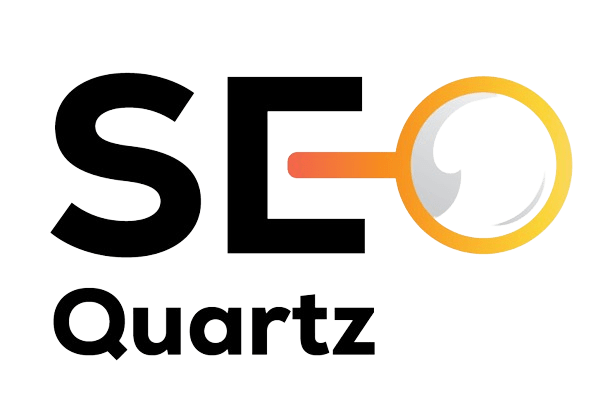How SEO Services Can Help Your Business Grow in 2026
Entity SEO in 2025: Why Keywords Alone Aren’t Enough Anymore
In the rapidly evolving world of search engine optimization, Entity SEO has emerged as a game-changer in 2025. While keywords still play a role, search engines like Google have become smarter, focusing on the meaning behind the content, not just the words. For businesses that want to stay ahead, it’s time to understand why keywords alone aren’t enough anymore and how entity-based SEO is the key to future-proofing your digital strategy.
What Is Entity SEO?
Entity SEO is the practice of optimizing content around entities—which are things, people, places, concepts, or organizations that search engines recognize and understand as distinct and connected topics. Unlike traditional SEO, which focuses heavily on keyword density and variations, Entity SEO helps search engines understand the context, relationships, and intent of your content. Think of it as helping Google understand what you’re talking about rather than what words you’re using.
Why the Shift from Keywords to Entities?
Search engines have grown far more intelligent, particularly with the rise of:
- Semantic search
- Natural language processing (NLP)
- Machine learning
- Knowledge Graphs and AI-generated summaries
These advancements allow Google to connect dots between topics, authors, brands, and user behavior. Simply stuffing your content with keywords no longer cuts it. In fact, it may even hurt your rankings.
Here’s why Entity SEO matters more than ever in 2025:
1. Google’s Knowledge Graph Prioritizes Entities
The Knowledge Graph helps Google deliver quick answers and summaries by associating relevant entities. If your brand or content is recognized as an entity, it becomes easier to rank for rich results and featured snippets.
2. AI & SGE Are Entity-First
With the launch of Search Generative Experience (SGE) and AI-driven search assistants, Google is shifting toward generative answers—and these are powered by entity recognition, not just keyword matching.
3. Better Understanding of Search Intent
Entities help search engines match queries with the right content based on context and relationships rather than just keyword matches. This leads to more accurate, personalized search results.
How to Optimize for Entity SEO in 2025
Want to make your website future-ready? Here’s how to implement entity-based SEO:
1. Define and Use Structured Data
Use schema markup (JSON-LD) to help Google understand who you are and what your content is about. This includes tagging:
- Organization
- Person
- Product
- FAQ
- Article
- Local Business
2. Build Topical Authority
Don’t just create keyword-specific pages. Develop clusters of content around an entity to build topical authority. For example, if you’re an SEO agency, don’t just write about “SEO tips”—cover local SEO, technical SEO, on-page SEO, and more.
3. Leverage Internal Linking and Ontologies
Use internal links to establish relationships between entities across your website. Link content pieces using natural anchor text that ties concepts together.
4. Earn Mentions and Backlinks
Mentions of your brand or website—even without a link—can be recognized as entity signals. Focus on brand building, PR, and white-hat link building strategies.
Explore: White-Hat Link Building Strategies That Still Work in 2025
5. Focus on Context, Not Just Keywords
Integrate related entities and terms that surround your main topic. If you’re writing about “SEO,” also mention Google algorithm updates, search intent, page speed, and content quality.
Want to keep up with updates? Read:
How to Survive Google Algorithm Updates
Entities in AI Search: The Future Is Now
Generative AI tools like ChatGPT, Bard, and Google’s SGE don’t just look for keywords. They analyze entity relationships to deliver relevant, structured answers. To appear in AI-powered results, you need to:
- Be recognized as a trusted entity
- Offer well-structured, context-rich content
- Optimize for Answer Engine Optimization (AEO)
Dive deeper: What is Answer Engine Optimization (AEO)?
Entity SEO vs Traditional SEO: Key Differences
| Feature | Traditional SEO | Entity SEO |
| Focus | Keywords | Context and Relationships |
| Ranking Signals | Keyword Density | Entity Recognition & Authority |
| Tools | Keyword Planner | Google Knowledge Graph, NLP |
| User Intent | General | Deep & Semantic Understanding |
| Compatibility with AI Tools | Limited | High |
How SEO Quartz Helps with Entity SEO
At SEO Quartz, we specialize in modern, AI-forward SEO solutions that align with entity-based optimization. From structured data implementation to content clusters, we help businesses in the U.S. dominate Google and SGE in 2025.
Want to future-proof your SEO?
Explore our services: SEO Services by SEO Quartz
Final Thoughts
Entity SEO is no longer optional—it’s essential. With Google and AI systems relying heavily on entity relationships and structured context, simply targeting keywords won’t get you far. In 2025, businesses that optimize for SEO will win more visibility, more traffic, and ultimately, better ROI.
FAQs
Is entity SEO better than traditional keyword SEO?
Yes. While keywords still matter, entity SEO ensures your content aligns with how search engines understand and connect topics, giving you a broader and deeper reach.
How do I find entities for my industry?
Use tools like Google’s Knowledge Graph, Wikipedia, and NLP APIs to identify recognized entities related to your niche.
Can small businesses benefit from entity SEO?
Absolutely. Small businesses can build topical authority and local relevance faster by focusing on entity-based content and structured data.
Is structured data necessary for entity SEO?
Structured data enhances your content’s visibility and helps search engines better understand and categorize your pages—it’s a key part of entity SEO.
 info@seoquartz.co
info@seoquartz.co
 +1 (276) 739-9962
+1 (276) 739-9962










